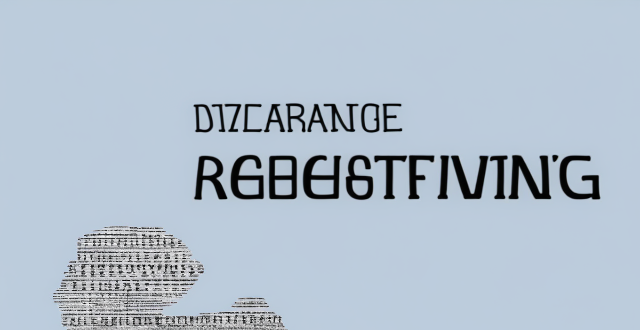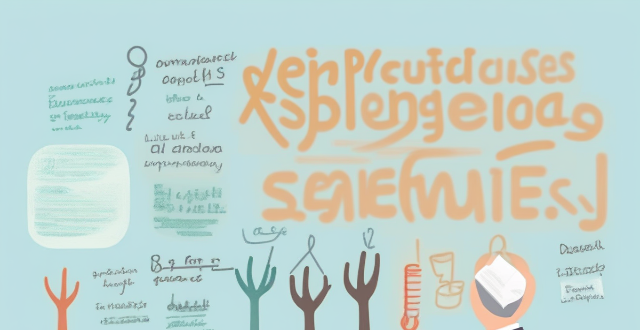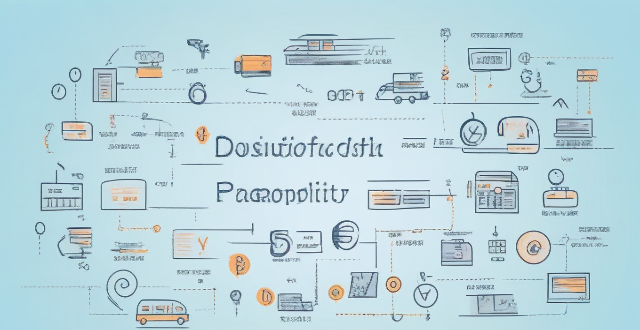Responsibility Integrity

What is academic integrity ?
Academic integrity is a fundamental principle governing the conduct of research, teaching, and learning in academic institutions. It encompasses values and ethical standards promoting honesty, fairness, respect, and responsibility among students, educators, and researchers. The goal is to maintain trustworthiness and credibility by adhering to high ethical standards. Core values include honesty, fairness, respect, and responsibility. Key aspects are avoiding plagiarism, fabrication, cheating, multiple submissions, and collusion. Violating academic integrity can lead to loss of reputation, disciplinary action, legal consequences, diminished career prospects, and ethical implications. Adhering to academic integrity promotes a fair and just academic environment.

How can students maintain academic integrity in their studies ?
The text discusses the importance of maintaining academic integrity in education and outlines several ways for students to do so. It emphasizes understanding the concept of academic integrity, adhering to school policies, citing sources properly, avoiding plagiarism, being honest in assessments, respecting intellectual property rights, maintaining confidentiality, reporting incidents of misconduct, and seeking help when needed. The text concludes that maintaining academic integrity is crucial for students to achieve success in their academic pursuits and beyond.

In what ways does academic integrity relate to professional ethics ?
**Academic Integrity and Professional Ethics: An Interconnected Relationship** The concepts of academic integrity and professional ethics are fundamentally interconnected, sharing principles like honesty, fairness, responsibility, respect, and courage. Academic integrity lays the groundwork for professional ethics by instilling foundational skills such as critical thinking, research integrity, and ethical decision-making. These skills transition from academia to profession, building reputations for reliability and trustworthiness. Therefore, promoting academic integrity is crucial not only for the academic community but also for the broader professional world.

Are there any cultural differences in perceptions of academic integrity ?
The perception of academic integrity can vary across cultures due to differences in values, beliefs, and practices. In individualistic cultures, academic integrity is often viewed as an individual responsibility, while collectivist cultures place more emphasis on group harmony and cooperation. Power distance can also influence perceptions of academic integrity, with high power distance cultures being more reluctant to report instances of academic dishonesty. The concept of time can also play a role, with monochronic cultures prioritizing efficiency over quality, while polychronic cultures focus on building relationships. Attitudes towards rules and regulations can also vary across cultures, with rule-based cultures viewing academic integrity as a set of strict rules, while relation-based cultures view it as something that depends on the relationship between individuals. Understanding these cultural differences can help educators design effective strategies to promote academic integrity among diverse student populations.

What are the long-term effects of breaches in academic integrity on one's career ?
The long-term effects of breaches in academic integrity can be severe and far-reaching, including damaged reputation, limited career opportunities, and potential legal consequences. It is essential for students, researchers, and educators to uphold the principles of academic integrity to ensure the success of their careers and the integrity of their respective fields.

How does academic integrity relate to the concept of intellectual property ?
The text explores the relationship between academic integrity and intellectual property. It defines academic integrity as the core values of scholarly work, including honesty, trust, fairness, respect, and responsibility, which are essential in research, teaching, and publishing. Intellectual property, on the other hand, refers to legal protections that give creators exclusive control over the use of their creations of the mind. The intersection of these two concepts is discussed in terms of respect for original work, protection of ideas, promotion of innovation, and ethical considerations. Both academic integrity and intellectual property laws stress the importance of respecting original work and protecting ideas. They also promote open access and sharing of knowledge while ensuring responsible conduct of research. The text concludes that upholding academic integrity contributes to a robust system of intellectual property that benefits society as a whole.

What is the role of peer pressure in maintaining or undermining academic integrity ?
Academic integrity is a commitment to honesty, trust, fairness, respect, and responsibility. Peer pressure can play a positive role in maintaining academic integrity by encouraging ethical behavior, promoting collaborative learning, and providing support and encouragement for students. However, peer pressure can also undermine academic integrity by promoting cheating and plagiarism, disrupting collaborative learning environments, and stigmatizing help-seeking behavior. It is essential to recognize the potential impact of peer pressure on academic integrity and work to foster an environment that supports ethical behavior and discourages cheating and plagiarism.

What are the consequences of violating academic integrity principles ?
Violating academic integrity principles can lead to serious consequences on both individual and institutional levels, including academic penalties, damage to reputation, difficulty gaining acceptance into programs or securing employment, emotional distress, and potential loss of accreditation for institutions. It is essential for students to understand the importance of maintaining academic integrity to protect their personal and professional futures, as well as the reputation of their educational institutions.

How do ESG standards affect corporate responsibility ?
ESG standards shape corporate responsibility by providing a framework for measuring and managing company impact on the environment, society, and governance. They require companies to reduce their carbon footprint, ensure sustainable sourcing, promote diversity and inclusion, engage with communities, maintain ethical business practices, and encourage board diversity. Adhering to these standards demonstrates commitment to sustainability and social responsibility, leading to long-term success and profitability.

Why is academic integrity important in education ?
Academic integrity is crucial in education as it promotes honesty, builds trust, ensures fairness, cultivates respect, and develops responsibility. It prevents damage to reputation and erosion of confidence in research, while also ensuring actual learning outcomes. Educators must reinforce these principles to create a culture that values honesty and excellence in scholarship.

How has the COVID-19 pandemic affected issues of academic integrity, especially with online learning ?
The COVID-19 pandemic has significantly impacted academic integrity in the education sector, particularly due to the shift to online learning. The increased opportunities for cheating during online examinations and plagiarism are major concerns. Difficulty in maintaining academic integrity standards, potential for misunderstandings and miscommunications, and strategies to address these challenges are also discussed.

How do communication protocols ensure data integrity and security during transmission ?
The text discusses the role of communication protocols in ensuring data integrity and security during transmission. It outlines mechanisms such as checksums, sequence numbers, acknowledgments for maintaining data integrity, and encryption, authentication, and secure protocols for ensuring data security. The article emphasizes that adhering to these rules allows devices to communicate reliably and securely over networks.

How are climate change and investor responsibility interconnected ?
Climate change and investor responsibility are interconnected in several ways. As investors, it is important to consider the impact of our investments on the environment and society as a whole. Here are some key points that highlight the interconnection between climate change and investor responsibility: 1. Environmental Impact of Investments 2. Risk Management 3. ESG Criteria 4. Regulatory Changes 5. Shareholder Activism 6. Reputational Risk

What is the difference between collaborative work and collusion in terms of academic integrity ?
The text discusses the differences between collaborative work and collusion in academic settings. Collaborative work is defined as a transparent process where individuals share ideas, resources, and skills for a common goal, distributing credit fairly and adhering to ethical standards. In contrast, collusion involves deceitful actions like plagiarism or falsifying data, aiming for unfair advantage and often resulting in severe penalties and reputational damage. The distinction is crucial for maintaining academic integrity and promoting an environment of honesty and transparency.

How does corporate social responsibility impact employee satisfaction and retention ?
Corporate Social Responsibility (CSR) is a business model that focuses on balancing profitability with social responsibility. It involves companies taking actions to improve societal well-being, environmental sustainability, and ethical practices. This approach not only benefits the community and the environment but also has a significant impact on employee satisfaction and retention. The relationship between CSR and employee satisfaction includes enhanced company image and reputation, alignment with personal values, and improved work environment. The relationship between CSR and employee retention includes lower turnover rates, increased loyalty, and higher engagement levels. In conclusion, corporate social responsibility plays a crucial role in enhancing employee satisfaction and retention. By prioritizing CSR initiatives, companies can create a positive work environment, attract and retain talent, and foster loyalty among their employees. As a result, businesses that embrace CSR are more likely to have a stable workforce and achieve long-term success.

How can students with English as a second language be supported in understanding and applying academic integrity standards ?
The text discusses the importance of supporting students with English as a second language (ESL) in understanding and applying academic integrity standards. It outlines four key strategies for doing so: providing clear explanations, accessible resources, open communication, and extra support. Clear explanations should cover what constitutes academic dishonesty, the consequences of violations, and how to avoid dishonesty. Accessible resources such as glossaries, guides, and videos can help ESL students understand these concepts better. Encouraging open communication between students and instructors can address concerns and questions about academic integrity. Providing extra support through tutoring services, workshops, and peer mentoring programs can further assist ESL students in adhering to academic integrity standards.

How can schools address the issue of contract cheating, where students pay others to complete their assignments or exams ?
Addressing contract cheating in schools is crucial for maintaining academic integrity. Effective measures include using advanced plagiarism detection tools, educating students on academic integrity, encouraging open discussions, providing support services, and collaborating with parents and guardians. These strategies can deter students from engaging in contract cheating and promote a culture of original work.

How does technology impact academic integrity, particularly regarding plagiarism ?
Technology has significantly impacted academic integrity and plagiarism in the educational world. The rise of plagiarism detection software has increased awareness and improved the quality of student work but may also lead to false positives and overreliance on technology. Evolution of writing and research tools makes information more accessible yet poses risks like plagiarism opportunities and lack of critical thinking. Social media and collaborative platforms facilitate collaboration and networking but can also contribute to plagiarism risks and distractions. It is crucial for educators to promote ethical practices while leveraging technology's benefits for learning and collaboration.

What is the impact of cheating on the integrity of sports competitions ?
Cheating in sports competitions has a profound impact on the integrity of the games. It undermines the fairness and equality that are fundamental to the spirit of competition. The various ways in which cheating affects the integrity of sports competitions include loss of trust and credibility, unfair advantage for cheating athletes or teams, harm to clean athletes, negative impact on young athletes, and damage to the reputation of the sport. To preserve the spirit of competition and ensure fair play, it is crucial for sports organizations, athletes, coaches, and fans to work together to prevent and address cheating in sports competitions.

What is corporate social responsibility (CSR) ?
Corporate social responsibility (CSR) is an approach where companies voluntarily integrate ethical and sustainable practices into their business model. It covers various aspects including environmental sustainability, ethical sourcing, community engagement, stakeholder relationships, and transparency. Implementing CSR can enhance a company's reputation, improve employee loyalty, and manage risks better. From a societal perspective, it can elevate living standards, promote sustainable development, and set ethical standards across industries. However, criticisms include potential greenwashing, increased costs for consumers, and a lack of universal standards for measuring CSR effectiveness. Despite these criticisms, the incorporation of CSR is becoming increasingly common, indicating a shift towards a more ethical and sustainable global economy.

How do we ensure that climate decisions are based on sound science ?
The text discusses how to ensure that climate decisions are based on sound science. It suggests a multi-faceted approach that includes ensuring data quality and integrity, promoting interdisciplinary collaboration, and enhancing public understanding and involvement. The author emphasizes the importance of rigorous research, maintaining data integrity, encouraging collaboration between different fields, integrating traditional knowledge and local expertise, educating the public about climate science, and encouraging public participation in decision-making processes. By adopting these strategies, we can make informed decisions that effectively address the challenges posed by climate change.

Why is corporate social responsibility important for businesses ?
In full: Why Corporate Social Responsibility is Important for Businesses Corporate social responsibility (CSR) is crucial for businesses as it helps manage reputation, mitigate risks, foster innovation and competitive advantage, and attract and retain top talent. Companies that engage in socially responsible practices are seen as trustworthy, ethical, and caring by consumers, investors, and employees. This positive image can lead to increased customer loyalty, higher employee retention rates, and better access to capital. By adopting sustainable practices, companies can reduce their exposure to regulatory fines, lawsuits, and reputational damage resulting from environmental or social misconduct. CSR also encourages innovation and competitive advantage by promoting creativity and collaboration within organizations. Today's job seekers are increasingly looking for employers who share their values and demonstrate a commitment to making a positive impact on society and the environment. By embracing CSR, companies can attract and retain employees who are passionate about making a difference in the world. As consumers become more aware of the impact of business on society and the environment, companies that prioritize CSR will be well-positioned to succeed in the long run.

Is it safer to stay in a high-rise building during an earthquake or evacuate ?
The article discusses the safety considerations for staying in or evacuating a high-rise building during an earthquake. It outlines the advantages and disadvantages of both options, such as structural integrity, risk of falling debris, and access to emergency services. The decision should be based on factors like the severity of the earthquake, the building's structural integrity, and available safety precautions. Being prepared with an emergency kit and knowledge of proper safety procedures is crucial for ensuring well-being during these events.

What character traits are essential for effective student leadership, and how can they be encouraged ?
Effective student leadership requires character traits like integrity, responsibility, empathy, courage, and adaptability. These traits help leaders inspire, motivate, and guide peers towards common goals. Encouraging these traits involves leading by example, open communication, ethical decision-making, assigning tasks, following up on progress, recognizing effort, active listening, promoting diversity, developing emotional intelligence, risk-taking opportunities, conflict resolution techniques, building a supportive environment, enhancing problem-solving skills, promoting continuous learning, and establishing feedback mechanisms.

What is climate debt ?
Climate debt is a concept that suggests wealthy nations owe a moral and ecological debt to poorer countries due to their disproportionate contribution to global warming. The idea is based on the principle of "common but differentiated responsibilities," which recognizes that all countries have a responsibility to address climate change, but the extent of this responsibility should be based on historical contributions and capacity to take action. Key points include historical responsibility, capacity to mitigate, and vulnerability and adaptation. Wealthy nations have been industrializing for longer and have more resources to invest in renewable energy, while poorer countries often lack the financial and institutional capacity to adapt to the impacts of climate change. Addressing climate debt is seen as an essential component of any equitable and effective response to the urgent challenge of climate change.

What is the role of sports in character building during adolescence ?
The article discusses the significant role sports play in character building during adolescence. Sports contribute to physical health and self-discipline, teamwork and social skills, goal setting and perseverance, responsibility and time management, emotional intelligence and stress management abilities. Engaging in sports not only benefits young individuals physically but also shapes their personality and values, preparing them for success in all aspects of life.

What are the ethical implications of climate refugees and displacement ?
Climate change has led to the displacement of people, creating a new category of refugees known as "climate refugees." The ethical implications of this issue involve the right to life and security, respect for human dignity, responsibility and accountability, international cooperation, and sustainable development. It is essential to ensure that climate refugees have access to basic necessities like food, water, shelter, and healthcare, and treat them with compassion and empathy. Governments, corporations, and individuals must take responsibility for their actions and work towards mitigating the effects of climate change. International cooperation is necessary to develop policies and strategies that protect the rights of climate refugees and prevent further displacement. Sustainable development is also crucial in minimizing the impact of climate change on future generations and avoiding further displacement. Addressing these challenges requires collective action from all sectors of society.

What are some examples of successful corporate social responsibility programs ?
Successful Corporate Social Responsibility (CSR) programs benefit society and the environment, enhancing a company's reputation. Examples include Starbucks supporting coffee farmers, Coca-Cola providing clean water in Africa, Unilever reducing carbon emissions, Microsoft using AI for environmental solutions, Walmart reducing food waste, Google powering operations with renewable energy, Patagonia donating to environmental causes, and Johnson & Johnson raising funds through social media engagement. These programs not only make a positive impact but also strengthen relationships with stakeholders.

Can corporate social responsibility lead to increased profits for businesses ?
The text discusses the potential for corporate social responsibility (CSR) to increase profits for businesses. It outlines key points such as enhanced brand reputation, improved employee morale and productivity, competitive advantage, risk mitigation, and access to capital as benefits of CSR. However, it also acknowledges potential challenges like short-term costs, difficulty in measuring ROI, and skepticism from consumers and stakeholders. The text provides examples of successful CSR programs that have led to increased profits, including Patagonia, Ben & Jerry's, and Tesla. It concludes that while the relationship between CSR and profitability is complex, a strong commitment to CSR can indeed lead to increased profits if approached authentically and strategically.

What is the responsibility of corporations in promoting environmentally friendly practices ?
Corporations have a significant role to play in promoting environmentally friendly practices. The responsibilities include reducing their carbon footprint, sustainable sourcing, effective waste management, water stewardship, biodiversity protection, and education and awareness. By adopting sustainable strategies, corporations can significantly reduce their negative impact on the environment and contribute to a more sustainable future.